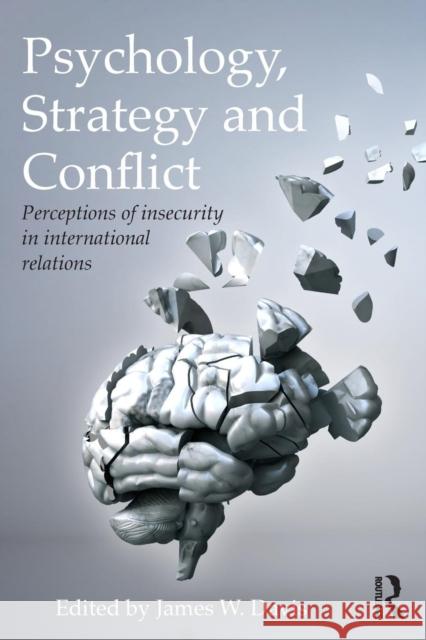Psychology, Strategy and Conflict: Perceptions of Insecurity in International Relations » książka
Psychology, Strategy and Conflict: Perceptions of Insecurity in International Relations
ISBN-13: 9780415643290 / Angielski / Miękka / 2013 / 250 str.
Psychology, Strategy and Conflict: Perceptions of Insecurity in International Relations
ISBN-13: 9780415643290 / Angielski / Miękka / 2013 / 250 str.
(netto: 229,44 VAT: 5%)
Najniższa cena z 30 dni: 216,55
ok. 16-18 dni roboczych.
Darmowa dostawa!
This volume examines the explanatory nesting approach in the analysis of international relations and its continuing relevance in the 21st century. International relations theory urgently needs strategies for coping with the growing complexity of the international system following the collapse of the US-Soviet bipolar stalemate, the multiple challenges to US unipolar hegemony, and the rise of powerful non-Western actors. Over the course of this book, leading scholars of international relations and diplomatic history return to an approach to explanation pioneered in the writings of Robert Jervis. The approach calls for nesting multiple layers of explanation--systemic, strategic, and perceptual--in an integrated causal account that is simultaneously parsimonious and nuanced. Highlighting the logic of strategic interactions under uncertainty, it also integrates the effects of psychological biases and the unintended consequences of acting in complex systems to provide explanations that are at once theoretically rigorous and rich in empirical detail. Analyzing the current state of Realist theory, signaling under conditions of uncertainty and anarchy, the role of nuclear weapons in international politics, the role of cognition and emotions in economic and foreign policy decision making, and questions of responsibility in international affairs, the authors provide a compelling guide for the future of international relations theory. This book will be of much interest to students of international relations, foreign policy, and security studies.











